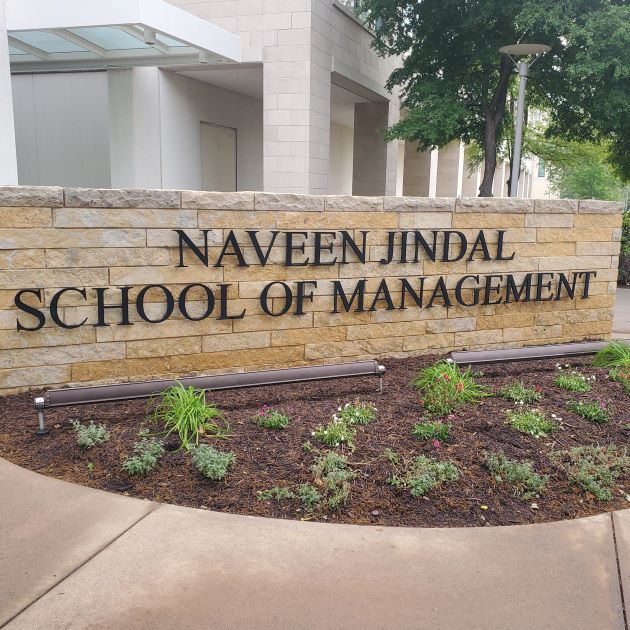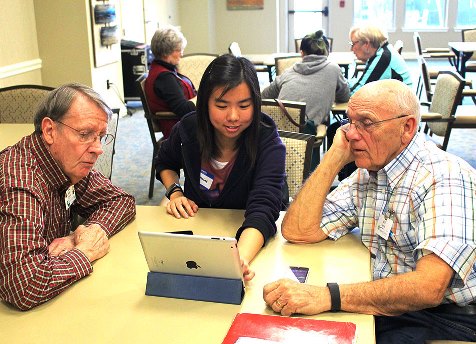
To amp up students’ sense of belonging in the bigger world beyond campus, the Naveen Jindal School of Management at UT Dallas is initiating a new program this fall that will require all undergraduates to dive deep into community service.
From now on, all incoming freshmen and new transfer students need to fulfill 100 hours of community service or work on business-related projects for nonprofits in order to graduate.
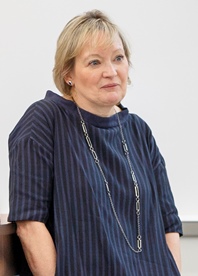
Dr. Marilyn Kaplan, associate dean of undergraduate programs, said the Jindal School is launching this initiative because one of its primary goals is to produce well-rounded citizens who engage with and become part of their communities.
“We want somebody who knows how to give back and who understands all parts of society — not just somebody who is good at crunching numbers,” she said.
Students will have several options for accumulating service hours. They can volunteer at approved nonprofit organizations, they can enroll in courses that have a service component, or they can do a combination of the two.
Qualifying course projects might involve creating a marketing plan for a nonprofit, helping an organization with financial statements or undertaking other assignments to help a charitable or service agency.
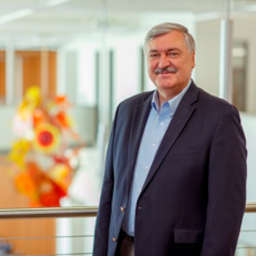
The new initiative is a result of discussions that Dr. Hasan Pirkul, Caruth Chair and Jindal School dean, has had with Kaplan in recent years about how best to fulfill some the school’s core mission objectives, namely, how to deliver the highest quality management education within the context of 21st century society’s complex realities.
From those meetings, they had first launched an internship requirement in 2014.
“One reason we had set up the internship requirement was that students had a tendency to wait too long to apply or talked themselves out of it,” Kaplan said. “We’re now getting them to try different companies and slightly different positions to really figure out what they want to do in their career long before they’ve graduated. It has gone so well that we decided to add a layer of community service to their education.”
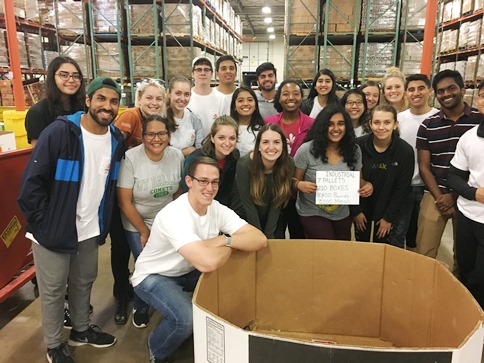
Although 100 hours of community service may seem daunting at first glance, over four years that breaks down to 25 hours a year or 12½ hours a semester.
“Students could knock that out while studying abroad, over a single weekend, during alternative spring break, or even by volunteering an hour or two at a time at various points during the course of a semester,” Kaplan said. “If students did just two hours of volunteer work every week, they would fulfill their obligation in less than a year.”
100 Hours in One Semester
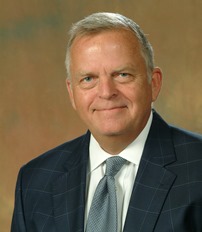
Robert Wright, a senior lecturer in innovation and entrepreneurship, is teaching a social entrepreneurship course, Social Sector Engagement and Community Outreach (ENTP 4340), that will fulfill all 100 required hours in a single semester. Transfer students might prefer this option if they are trying to keep to a four-year graduation timeline.
“The students will apply skills developed through their academic studies to real-world issues encountered by small, developing businesses,” Wright said. “Think of these projects as consulting assignments and the businesses as clients. Teams will deliver targeted solutions to identified problems designed to allow success in the context of a single semester.”
Wright, who sits on the board of directors at United Way of Metropolitan Dallas, worked with the organization throughout last summer to design an application that can log and track the service component of the course.
“This requirement has the potential to either enrich the lives of Jindal School students by giving them a community expression, or it changes the course of their lives by sending them down a path of working in community service,” Wright said.
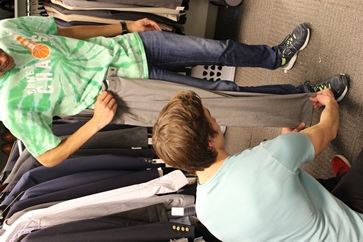
The requirement also provides students with opportunities to reinforce soft skills they learn at the Jindal School.
“Community service is a form of leadership training,” Pirkul said. “Students learn how to communicate a clear vision of the organization they serve, analyze issues, solve problems, delegate tasks, build trust, and influence and motivate others to contribute to the cause. These are valuable skills that any employer would expect when they look to hire someone.”
Service Opportunities
The Jindal School has collaborated with both United Way of Metropolitan Dallas and the UT Dallas Office of Student Volunteerism to connect students with a wide range of service opportunities. Students will be able to sign up for volunteer work that suits their interests and skills, and will log completed service hours using project management software.
Administrators have taken into account the fact that many JSOM students already perform community service through fraternities, sororities or student organizations. Those students will be able to count service hours with organizations that have been approved as partners.
“Many students were already doing the entire 100 hours or more,” said Dr. Marilyn Kaplan, associate dean of undergraduate programs. “We were just never able to collect the data or know the impact of what our student body was doing until now.”
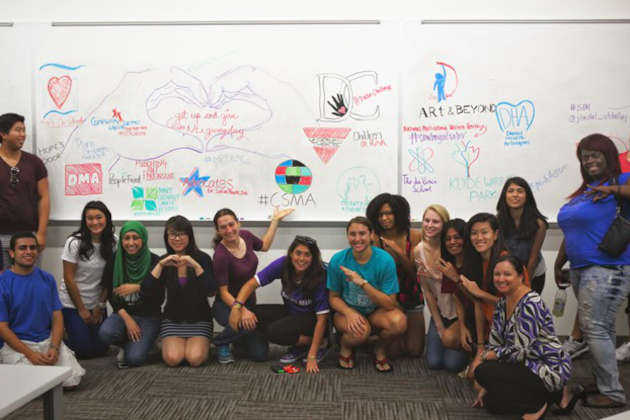
Other course offerings for fall 2018 that can fulfill part of the new service requirement include the following:
- Business Basics (BA1100), a required core course for all incoming freshmen, will have a community service component that satisfies five hours of a student’s obligation.
- Product and Brand Management (MKT 3320) offers students a chance to earn 20 service hours working with a nonprofit on a project in advance of North Texas Giving Day.
- Digital and Internet Marketing (MKT 4330) may fulfill 10 hours as students develop Google Adwords campaigns for small businesses if the campaign is for a nonprofit.
- Marketing Research (MKT 3340) may satisfy 20 hours of the community service obligation as students conduct a survey and analyze the results for a nonprofit community partner.
Dr. Daniel Rajaratnam, a clinical professor in marketing, teaches the marketing research course. His students can earn hours by helping nonprofit businesses and organizations such as Habitat for Humanity ReStores and the Humane Society. Rajaratnam said that service projects have multiple benefits — the students get practical experience, the business and organizations get much needed help and the University gets to give back to the community.





